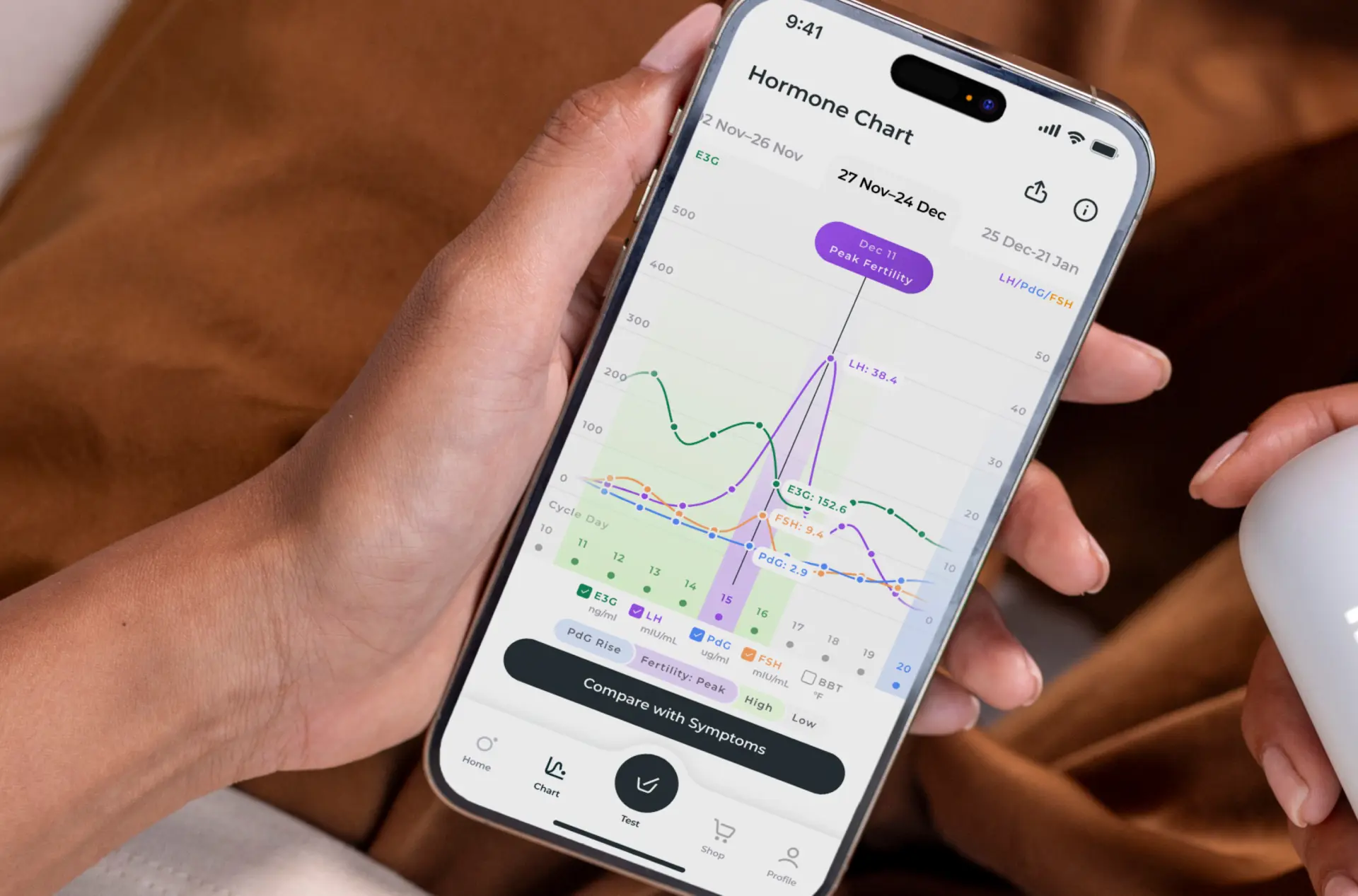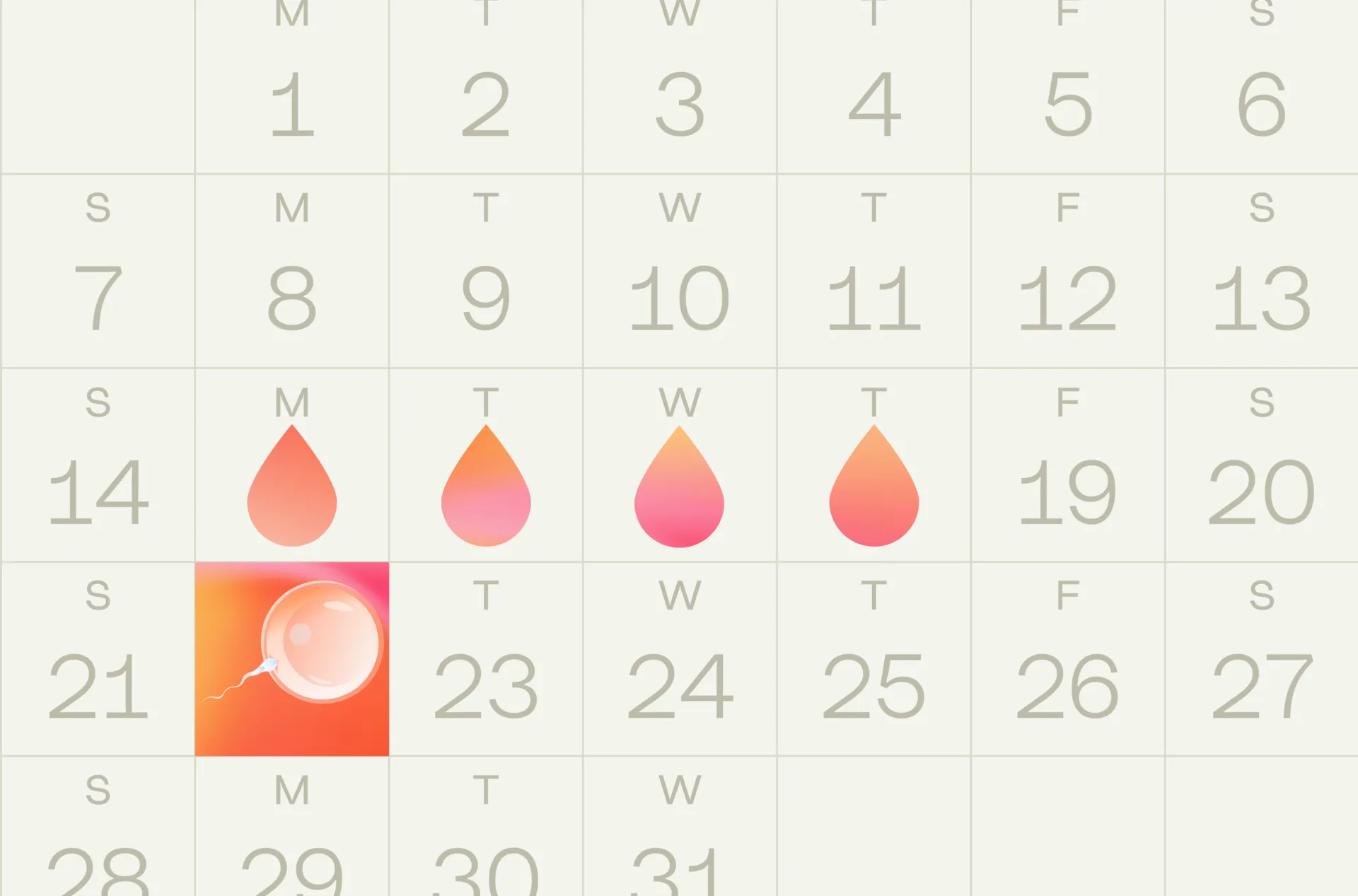Content table
Struggling with fertility can be a difficult and emotional experience for many women. In the United States, approximately 10% of women face infertility.
If you’re struggling to conceive, it may surprise you to learn that your weight could be a factor.
Studies have shown that if a woman’s body mass index (BMI) is too low or too high, it can make it harder for her to get pregnant.
Even celebrities, like Kim Kardashian, Elle Magazine have shared their struggles with infertility due to a high BMI.
In this article, we’ll dive into the connection between your weight and fertility.
We’ll provide you with the newest information and helpful hints on how to improve your BMI fertility. So you can have a better chance of becoming pregnant.
Whether you’re a celebrity or not, it’s important to understand how your weight can affect your ability to have a baby.
Don’t give up hope – read on to learn more!
Understanding BMI and its role in fertility
Body mass index (BMI) is a measure of body fat based on weight and height. It is a tool to assess whether you are underweight, normal weight, overweight, or obese. As a sign of a woman’s health, it plays a significant role in fertility and future pregnancy.
Here’s how to calculate your BMI:
- Divide your weight (in kilograms) by the square of your height (in meters). To calculate your BMI in pounds and inches, divide your weight by the square of your height. Now multiply the final number by 703. For example, a woman who is 5’4″ and weighs 172 pounds would have an approximate BMI of 27.4.
- Or, you can use an online BMI calculator to determine your BMI.
When you know your BMI, use it to determine if you need to make lifestyle changes.
The optimal BMI range for fertility
When it comes to assessing health and fertility, body mass index (BMI) is a used measure. But it has its limitations.
Experts point out that BMI does not consider muscle mass or body composition. They suggest that factors such as waist circumference may be better indicators.
Despite these limitations, BMI remains a common measure.
Studies continue to show a clear link between BMI and female fertility.
While the optimal BMI for fertility varies from person to person, a BMI between 18.5 and 24.9 is healthy. Women who are overweight have a BMI between 25 and 29, while those who are obese have a BMI over 30.
It is important to remember that BMI is only one factor in one’s fertility journey. Age, underlying health conditions, and lifestyle habits are also significant factors.
Understanding overweight & underweight and their impact on fertility
Maintaining a healthy BMI is critical for fertility. If you are overweight or underweight, it can affect your hormonal balance.
This imbalance makes it more difficult to become pregnant and have pregnancy complications.
How body fat affects fertility?
Body fat plays a critical role in fertility and conception. In fact, women with high body fat have thrice the risk of infertility than normal-weight women.
Studies show that non-obese women have 68% higher chances of having a live birth than in obese women.
Did you know that obese women have a 40% higher risk of experiencing menstrual problems?
This makes it challenging to predict ovulation. It also makes it difficult to determine the best time for intercourse.
Excessive weight gain also affects high blood pressure. This increases your risk of infertility and other complications during pregnancy.
Besides these risks, high body fat can also affect the balance of fertility hormones in the body.
Body fat levels can impact fertility by affecting many hormones. These include estrogen, progesterone, and testosterone, which are essential for reproductive health.
Here are some of the specific ways in which body fat can affect these fertility hormones:
- Estrogen: A hormone produced by the ovaries. It plays a critical role in the menstrual cycle, ovulation, and fertilization.High body fat levels can increase estrogen levels. interfering with ovulation and fertilization.
- Follicle-stimulating hormone (FSH): A hormone that helps stimulate the growth and development of follicles in the ovaries.High levels of body fat can disrupt the balance of FSH. This leads to anovulation (the absence of ovulation). This stops you from ovulating, which means you can’t get pregnant.
- Luteinizing hormone (LH): LH is a hormone that is primarily responsible for triggering ovulation in females. LH levels usually rise and fall in a predictable pattern during the menstrual cycle. A surge in LH usually indicates the onset of ovulation. But, high levels of body fat can interfere with this process and disrupt the possibility of ovulation.
- Progesterone: Progesterone is a hormone produced by the ovaries after ovulation. It helps prepare the uterus for implantation and maintains a healthy pregnancy.High body fat levels can reduce progesterone production. This can result in irregular menstrual cycles and difficulty in conceiving.
- Androgens: These are male hormones that are also found in small amounts in women.High levels of body fat can lead to insulin resistance, which can throw off the balance of these hormonesWhen androgen levels are too high, it can make it harder for women to ovulate and have a baby.
Excess weight and high BMI can increase the risk of developing Polycystic Ovary Syndrome (PCOS). This condition can cause irregular periods and difficulties in conceiving.
This is a concern since PCOS makes women five to ten times more likely to be infertile. Due to this, many women turn to fertility treatments like In Vitro Fertilization (IVF).
Women with a BMI over 30 are 42% less likely to conceive through IVF.
Maintaining a healthy weight and body fat percentage is essential for optimal fertility. It ensures the balance of these hormones necessary for ovulation, fertilization, and implantation.
How low body weight affects fertility?
Low body weight can be detrimental to female fertility, as it affects the balance of hormones in the body. Studies have shown that women with a low BMI have a 72% higher risk of infertility and health issues.
If you have a BMI below 18.5, you may experience irregular menstrual cycles. Or you may even stop menstruating altogether due to hormonal imbalances.
Here are some of the ways low body weight can affect hormone levels and fertility:
- Follicle-stimulating hormone (FSH): Low body weight can lead to a decrease in FSH. FSH is essential for stimulating the growth of ovarian follicles. This can interfere with the development and release of eggs from the ovaries. The result makes it more difficult to conceive.
- Luteinizing hormone (LH): Low body weight can also cause a decrease in LH. This is necessary for ovulation. This can result in irregular menstrual cycles or a complete absence of menstruation.
- Gonadotropin-releasing hormone (GnRH): Low body weight can cause a decrease in GnRH. This hormone signals the body to release FSH and LH. This can lead to a decrease in ovarian follicle growth and ovulation.
- Estrogen: Low body weight can lead to a decrease in estrogen levels. This interferes with the development and release of eggs from the ovaries. This can lead to irregular menstrual cycles or a complete absence of menstruation.
- Progesterone: Low body weight can also cause a decrease in progesterone levels. Progesterone is necessary for preparing the uterine lining for implantation. This can make it more difficult for a fertilized egg to implant and develop into a viable pregnancy.
Low body weight disrupts the delicate balance of hormones involved in female fertility. This makes it more difficult for women to conceive. Seek help from your healthcare provider or a fertility specialist if you are having trouble getting pregnant due to low body weight.
The role of muscle mass in fertility
While body fat is often associated with BMI-related fertility problems, muscle mass also plays a crucial role.
It’s a critical component of body composition. This can directly affect hormones and fertility.
Muscle mass can also indirectly impact fertility by influencing exercise habits.
Women who do high-intensity exercise have a 23% greater risk of infertility.
Intense exercise and weight loss, like marathon running or weightlifting, can cause stress in the body. This stress triggers the release of cortisol.
Cortisol is a hormone that can disrupt the balance of other hormones like estrogen and progesterone. These are necessary for regular menstrual cycles and ovulation.
This results in irregular menstrual cycles or missed periods. Making it more difficult to get pregnant.
Intense exercise can also use up energy stores and decrease body fat. This impacts levels of estrogen in the body.
But don’t worry! Regular physical activity is still important for a woman’s fertility. Moderate exercise can help regulate hormones and improve blood flow to reproductive organs.
This supports regular menstrual cycles and healthy ovulation.
Women who exercise regularly have a 30% lower risk of infertility than those who do not exercise at all. Examples of moderate exercise include brisk walking, light jogging, cycling, or swimming.
Moderate exercise can also help manage stress as exercising daily releases endorphins. With a moderate exercise regime, you can also maintain a healthy body weight. And as explained above, we know that both affect your fertility.
It’s important to note not all women who engage in intense exercise or weight lifting have fertility issues. Some women are able to maintain their fertility while continuing intense exercise habits. It’s best to consult your healthcare provider to understand what works best for you.
Find a balance between exercise, ideal weight, and rest to support optimal fertility.
Other factors affecting fertility
BMI is a useful tool to check your health. But it doesn’t provide a comprehensive understanding of fertility. Other essential factors also play a crucial role in determining fertility.
Consult your doctor if you have worries about your reproductive health. Take the essential steps to resolve them.
Irregular periods and fertility difficulties can be alarming. Various tests verify your health and fertility potential.
To get the most precise understanding of your health, blood tests, and physical exams are best. Your doctor will test your fertility with a physical exam or check your ovarian reserve. This measures your follicle stimulating hormone (FSH), Anti-mullerian hormone (AMH), Antral Follicle Count (AFC), and estradiol levels.
Your doctor may also recommend a semen analysis for your partner. This includes a test to check their sperm count, how well they move, and their shape.
When assessing your health and fertility potential, consider the following factors:
Age: Women’s fertility declines with age. As women get older, the quality and quantity of their eggs decrease, making it harder to conceive. Women over the age of 35 are more likely to experience fertility issues. The risk of miscarriage and chromosomal abnormalities increases.
In fact, a woman’s chance of getting pregnant decreases to about 75% by the age of 30. The chances continue to decline to 66% at 35 years and 44% at 45 years. Women over the age of 35 may need to explore fertility treatment options.
Irregular menstrual cycles: Normal menstrual cycles range from 21 to 35 days. Irregular menstrual cycles can be a sign of underlying fertility issues. 14%- 25% of women experience irregular periods.
Tracking your ovulation is important for women trying to conceive. For greater accuracy, use a quantitative test like the Inito fertility monitor. It measures LH, estrogen, FSH, and PdG (urine metabolite of progesterone) levels. It’s also essential to choose a test, like Inito, that measures beta LH. Tests that measure alpha LH can cross-react with FSH and give inaccurate results.
Diet & nutrition: The food you eat plays a vital role in maintaining your fertility. Consuming a diet high in processed foods, sugar, red meat, and simple carbohydrates can lower your fertility. One study found that women who ate more carbohydrates were at a 78% greater risk of failing to ovulate leading to infertility.
Exercise: Moderate exercise helps in boosting fertility while high-intensity workouts can harm your chances of conception. Vigorous exercises increase the production of cortisol in your body which alters the normal production of fertility hormones.
If you are struggling with infertility and have any of the above factors adding to the trouble, here’s what you need to do. Start tracking your ovulation and fertile window to keep a check on your fertility. z
How to check for fertility?
Hormone testing: Doctors can do hormone tests to check for imbalances that may affect fertility, like Polycystic Ovary Syndrome (PCOS). PCOS affects up to 10% of women of reproductive age. This causes irregular periods and difficulty in getting pregnant. Blood tests for hormone levels can be accurate, but they measure the levels during one phase of your cycle. This makes it hard to track ovulation using only hormone testing. Using the Inito Fertility monitor can measure FSH, LH, estrogen, and PdG levels daily. This gives you a complete picture of what’s going on in your body, making it easier to track and confirm ovulation, and increase your chances of getting pregnant.
Ultrasound: Almost 50% of women with infertility have issues with their reproductive system. Ultrasounds provide direct insight into your reproductive health and identify potential issues. Issues such as blocked fallopian tubes or uterine fibroids. Once identified, you can explore fertility treatment options with your doctor.
Managing BMI for improved fertility: diet and exercise
Maintaining a healthy BMI is crucial for optimizing your chances of conceiving. Body weight can impact the menstrual cycle, ovulation, and reduce fertility.
Here are some tips to help you manage your BMI for improved fertility:
- If you’re overweight, even a small amount of weight loss can make a significant difference. Losing 5-10% of your body’s excess weight can improve your chances of getting pregnant. Eat a healthy, balanced diet and engage in regular exercise that gets your heart rate up. This is the best way to lose excess weight.
- If you are underweight, putting on some weight could help you have a baby. Eating foods with lots of protein can make you gain weight in a good way and help your periods stay regular. For example, you could try eating more eggs, chicken, or nuts.
Consult your doctor or fertility specialist to find what BMI normal range is best for your body. Work with them to create a plan that works for you.
Remember, small changes can make a big difference.
The role of nutrition in maintaining an optimal BMI for fertility
Healthy eating is crucial for optimizing your chances of conceiving.
Doctors suggest some changes to your eating and lifestyle habits if you want to have a healthy baby.
Here are changes that can help improve your chances of getting pregnant:
- Increase your consumption of fruits, vegetables, whole grains, lean proteins, and healthy fats. A diet rich in whole foods provides essential nutrients needed for reproductive health. Lean proteins, such as chicken, fish, and legumes, can also help improve fertility. Healthy fats, such as those found in nuts, seeds, and fatty fish, are essential for hormone production and balance.
- Avoid processed foods, sugary drinks, and excessive alcohol consumption. Processed foods and sugary drinks are high in refined sugars. This can cause insulin resistance and inflammation, both of which can affect fertility. Excessive alcohol consumption can also interfere with ovulation and hormone balance.
- Incorporate foods rich in folate, such as leafy green vegetables and fortified cereals. Folate is an essential nutrient for fetal development. It can help prevent neural tube defects. Ensure that you are getting enough folate before conception and during early pregnancy.
- Eat regular meals and limit unhealthy snacking. Maintaining a regular eating schedule helps regulate blood sugar levels. This prevents insulin resistance which can affect fertility. Limiting unhealthy snacking also helps maintain a healthy weight.
- Increase consumption of omega-3 fatty acids found in fatty fish and nuts. Omega-3 fatty acids are essential for hormone production and balance. And can help improve egg quality.
- Avoid crash diets and extreme calorie restrictions. Crash diets and extreme calorie restrictions can cause hormonal imbalances and affect ovulation.
- Swap sugary drinks and alcohol for water. Drinking plenty of water can help maintain hydration and flush toxins from the body. This can help improve fertility.
- Make sure to fill half your plate with vegetables at lunch and dinner. A diet rich in vegetables provides essential nutrients for reproductive health. It can help maintain a healthy weight.
- Practice stress-management techniques, such as yoga, meditation, or deep breathing. Stress can affect fertility by disrupting hormone balance and ovulation. Practicing stress-management techniques can help reduce stress levels and improve fertility.
Mix up your meals with healthy foods that have important vitamins and minerals.
This will help your body stay healthy and improve your chances of having a healthy baby.
The benefits of regular exercise for fertility
Regular exercise is a critical element to improve fertility. All these factors can benefit you and your baby’s health.
Here are some benefits of regular exercise for fertility and health:
- It helps you lose weight, improve blood flow, and give your immune system a boost.
- Regular exercise can balance fertility hormones, regulate insulin, and reduce stress. These are all important for increasing your chances of getting pregnant.
- Research shows that moderate physical activity for 30 minutes a day improves fertility.
- Yoga and Pilates increase blood flow to the reproductive organs and balance hormones.
- Consult your doctor to create a safe and effective exercise plan tailored to your needs.
Enjoy the health benefits of exercise. Commit to regular exercise and you can increase your chances of getting pregnant.
Key takeaways:
- The link between body fat and fertility is crucial for those trying to conceive.
- Both low and high BMI can lower fertility.
- A normal BMI range for fertility falls between 18.5 and 24.9.
- Underweight women may experience irregular periods or stop menstruating altogether.
- Overweight women may have trouble ovulating.
- Regular exercise and a healthy diet can help manage BMI and improve fertility.
Don’t give up hope! You can improve your chances of getting pregnant and having a healthy baby. Use the right tools and resources to take control of your fertility journey.
Was this article helpful?
- Impact of obesity on infertility in women – PMC
- Association Between Body Mass Index and Female Infertility in the United States: Data from National Health and Nutrition Examination Survey 2013–2018 – PMC
- Impact of obesity on infertility in women – PMC
- Obesity as disruptor of the female fertility | Reproductive Biology and Endocrinology | Full Text












